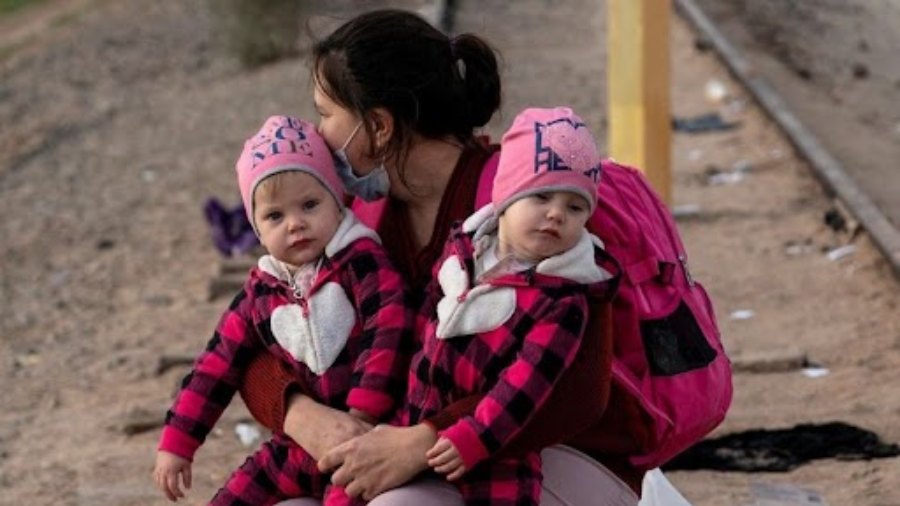The explosions began before dawn. Loud booms of artillery in the distance, shaking a region that knows conflict and death all too well. Then came an eerie silence, pierced by the crowing of roosters, as people blinkingly stepped out of their homes into the morning light.
Then came the outrage, and the panic.
In this small town in eastern Ukraine’s Donetsk region, not too far from where heavy fighting was underway on Thursday morning, people were making runs on the banks, runs on the petrol pumps, and some people were just running, trying to get west.
“It’s panic, don’t you see?” said Yevheni Balai, pointing to the line of anxious Ukrainians standing outside a closed bank, desperate to take out cash. “They’ve got exactly what they wanted, the ones on the other side — panic and destabilisation.”
For years, war between the Ukrainian military and Russia-backed separatists has been a persistent conflict to which the rest of the world scarcely paid attention. To a degree, rushing to get money and food after explosions has become part of the rhythm of daily life.
But this was different. Now Russia was invading.
As Ukrainian officials surveyed the country, with Russian attacks having been launched against cities, residents in Kiev, the capital, were waiting in line for up to an hour to buy fuel for their cars. The city’s main airport was bombed and its major roads were jammed with traffic as people tried to flee.
Ukraine’s defence minister, Oleksiy Reznikov, called on anyone looking to take up arms against Russian forces to immediately join the country’s territorial defence units. All anyone needed to sign up was a Ukrainian passport, he said.
“The enemy is attacking, but our army is indestructible,” he said.
“Ukraine is moving into all-out defence mode.”
At a base in Slovyansk for Ukraine’s National Guard, troops in drab green uniforms scrambled in all directions. Wives and girlfriends had come to say goodbye to soldiers, even as the soldiers admitted that they did not quite know where they were being ordered to go.
“It’s not good, I’ll tell you,” said one of the guardsman, who only gave his first name, Yevheni. He said he had been fighting against Russian-backed separatists in the breakaway enclaves of eastern Ukraine since the war broke out in 2014. His wife, Yelena, came to deliver clothes for him.
“They told us to not come to work. All the kindergartens are closed. But right now, everything is quiet,” she said. “They said they are preparing for evacuation.”
Outside a blood bank in Slovyansk, Bohdan Kravchenko was sitting in his car after making a donation, listening to the Ukrainian national anthem on high volume.
“We’re doing what we can to support the country,” he said. “There is no panic. We just have to act according to the situation. Things have only just begun.”
Inside, the director of the blood bank, who gave only her first name, Katerina, was fuming.
“They’re treacherous,” she said of the Russians. “They call themselves our brothers. What kind of brothers! I’m indignant. How many years did we belong to the same so-called country? How could the Russians behave like this?”
New York Times News Service
Poland, Hungary and Slovakia welcome Ukrainian refugees
Central European countries braced on Thursday for the arrival of refugees fleeing Russia’s invasion of Ukraine, with Poland setting up reception points on its border and Hungary and Slovakia planning to send troops to manage the likely influx.
The countries on the EU’s eastern flank were all once part of the Moscow-led Warsaw Pact and are now members of Nato. Among them, Poland, Hungary, Slovakia and Romania all share land borders with Ukraine.
Earlier on Thursday, Russia launched an all-out invasion of Ukraine by land, air and sea.
Reuters










